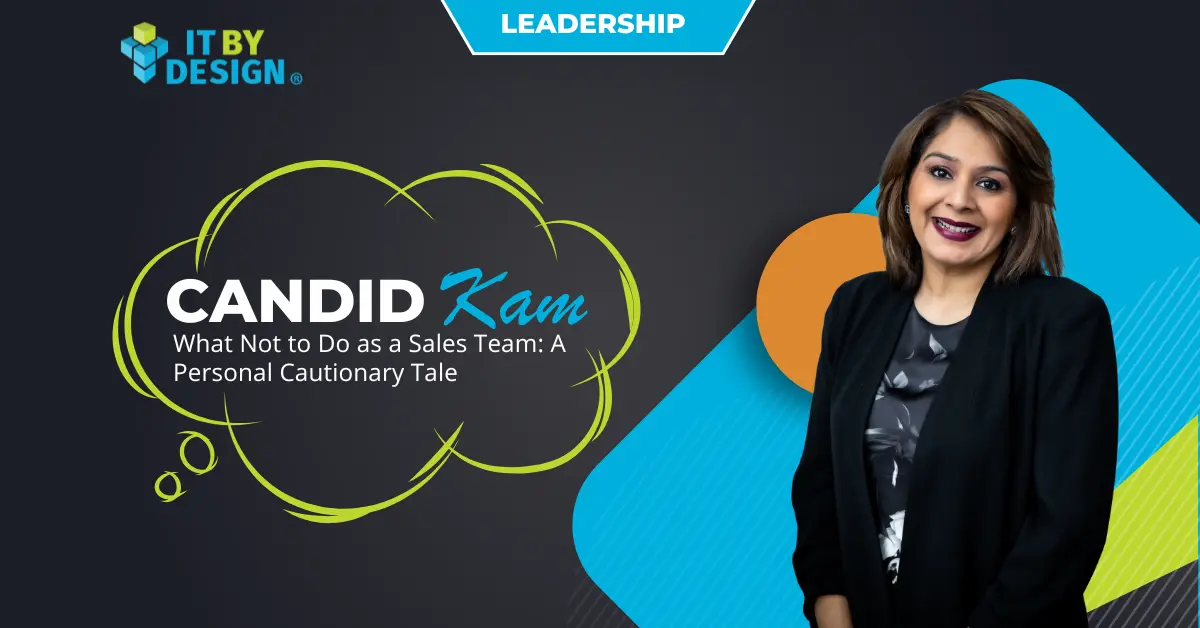As managed services providers take on the responsibility of delivering diverse IT services like cloud computing, cybersecurity, data backup and network monitoring, their role extends beyond technical expertise to encompass leadership. Whether managing a team of employees, contractors or partners, effective leadership skills significantly impact service quality, client satisfaction and business growth.
Being a leader is not just about giving orders and delegating tasks, it is about setting a positive example for others to follow. By demonstrating a strong work ethic, professionalism and a commitment to continuous learning, MSPs can inspire their team members to strive for excellence. Additionally, effective leaders create a collaborative and inclusive work environment, encouraging open communication and empowering their team members to contribute their unique perspectives and ideas.
The Concept
Leading by example means guiding others through one’s own behavior, inspiring them to emulate those actions. This leadership approach involves consistently demonstrating the desired conduct and attitudes—such as respect, integrity, honesty, hard work and accountability. The juxtaposition to leading by example is saying one thing and doing another, a stance increasingly incompatible with modern expectations where actions align with stated values.
For example, a manager may prioritize a healthy work-life balance and actively promote self-care among their team members. They may regularly take breaks, encourage others to do the same and create a supportive environment where employees feel comfortable prioritizing their well-being. This not only promotes a positive work culture but also shows that the manager values the overall health and happiness of their team.
The Importance
Setting a positive example for others benefits leaders, teams, clients and businesses in several ways:
- Boosts employee morale and engagement by positively influencing employee attitudes, satisfaction, and performance, encouraging higher morale and increased productivity. Aligning actions with values demonstrates genuine care for employees, improving engagement and loyalty. According to a report by People Element, employee engagement increased by 3% in 2023, despite the challenges posed by the pandemic and the economic downturn.
- Builds trust and respect by garnering trust and respect. Consistency in actions, understanding stakeholders’ needs and actively seeking solutions contribute to a culture of trust, enhancing customer loyalty and retention.
- Cultivates a positive work culture by influencing employee well-being, creativity, innovation, and collaboration. A healthy environment attracts and retains top talent and clients.
- Drives growth and performance by setting high standards, achieving better results, exceeding client expectations, seizing opportunities and overcoming challenges. Transparency, accountability, innovation and a visionary approach positions leaders to dominate the market.
Exemplifying Leadership
Practical approaches involve a comprehensive strategy. MSPs are encouraged to begin by clearly defining their business’s long-term goals and guiding principles, ensuring alignment with the needs of their clients. This vision and set of values should be effectively communicated to both their team and clients, establishing a shared direction.
Additionally, organizations are advised to set SMART goals, making them Specific, Measurable, Achievable, Relevant and Time-bound for themselves, their team and their clients. This includes a commitment to regularly track progress and celebrate achievements while identifying areas for improvement.
Delegation and empowerment are other key aspects of leading by example, so assign tasks and responsibilities based on team members’ skills and potential to create a sense of ownership, accountability and skill development throughout the company. Providing constructive and timely feedback on performance and behavior (coupled with acknowledging achievements and contributions through praise and appreciation) plays a crucial role in enhancing service quality and building trust.
Finally, a dedication to continuous learning and growth is crucial. Stay abreast of industry trends and technologies, seek feedback from team members and clients and invest in ongoing professional development. This perpetual learning process is instrumental in enhancing expertise, expanding capabilities and ultimately increasing overall value.
The True Value
Leading by example is both a skill and a mindset that demands intentionality, consistency and authenticity in actions and words. By embracing humility, curiosity and openness to feedback and change, MSPs can inspire others to follow their lead and achieve a shared vision. By adopting this approach, organizations can elevate their service delivery, satisfy clients and promote business growth.
This not only benefits the MSP but also sets a benchmark for the industry as a whole, driving progress and raising standards. Ultimately, leading by example is not just about personal success but about making a lasting impact on the channel and shaping the future. Taking the initiative to lead by example today can bring about meaningful differences.








